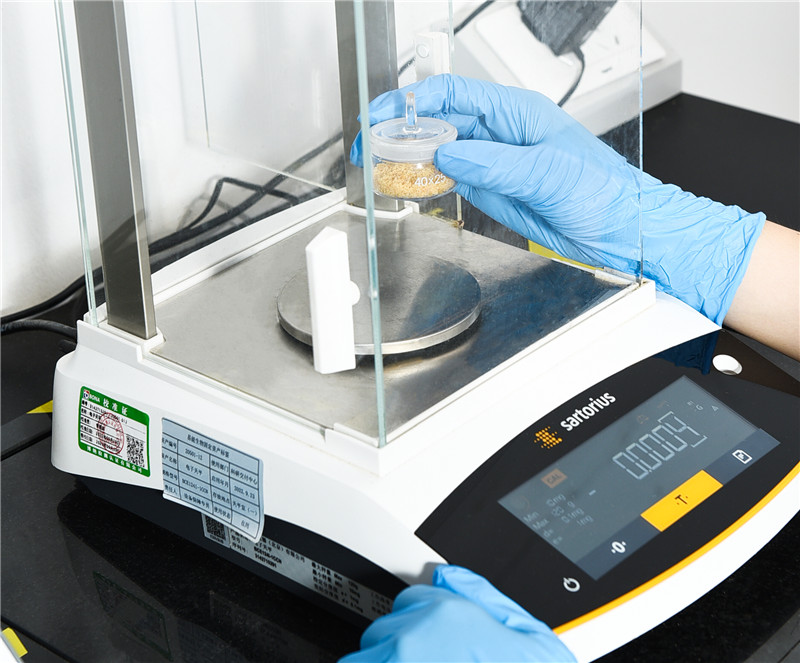Tongxinluo is a traditional Chinese medicine formulation widely used for millennia.
The compound has shown cardioprotective potential in small in vitro, animal, and human studies but has not been tested in larger investigations. Components Interact

Medical experts at China’s National Center for Cardiovascular Diseases recently set up a study to determine if Tongxinluo, taken along with guideline-directed treatments, might improve outcomes in people with ST-segment elevation myocardial infarction (STEMI).
STEMI is a major, life threatening cardiovascular event affecting people worldwide. In the U.S., an estimated 550,000 new and 200,000 recurrent cases occur yearly. Mortality rates at 30 days for people with this condition fall between 2.5% and 10%.
Risk factors for its onset include hypertension, type 2 diabetes, dyslipidemia, smoking, and family history of coronary artery disease.
In their 12-month clinical trial of 3,777 people with STEMI, the team found that this therapy was associated with markedly reduced cardiac and cerebrovascular events.
The original research was published in October 2023, appearing in JAMA.
The China Tongxinluo Study for Myocardial Protection in Patients with Acute Myocardial Infarction (CTS-AMI) was a randomized clinical trial conducted in 124 clinical centers throughout China. The Tongxinluo group had 1,899 people, and the placebo group had 1,898 subjects, although some were eventually excluded from the study.
To direct their research, the study’s authors asked: “Among patients with acute ST-segment elevation myocardial infarction (STEMI), does the addition of a traditional Chinese medicine compound (Tongxinluo) as an adjunctive treatment to guideline-directed therapies improve clinical outcomes?”
The researchers administered Tongxinluo orally via capsules to the participants for 12 months, and they gave a placebo to a control group.
The researchers assessed the capsules for clinical effectiveness and safety at 30 days and at one year. Both types of capsules looked, smelled, and tasted the same.
Both groups demonstrated similar patient baseline characteristics and care details. The average age of participants was 61 years, and 77% were male.
The trial ran from May 2019 to December 2020.
Endpoints at 30 days included major adverse cardiovascular and cerebrovascular events (MACCEs) such as cardiovascular death, myocardial re-infarction, cerebral stroke, cardiogenic shock, and heart failure.
One-year endpoints included MACCE, hospitalization due to heart failure, in-stent thrombosis, major bleeding, and all-cause mortality.
The primary endpoint of 30-day major adverse cardiac and cerebrovascular events (MACCEs) dropped substantially with Tongxinluo. Fewer cardiac deaths resulted as well.
Further, these effects carried on throughout one year with no significant change in major bleeding.
Medical News Today discussed this study with Dr. Tom Ingegno, an acupuncturist and lead clinician at Charm City Integrative Health in Baltimore, MD, who was not involved in this research.
Dr. Ingegno said that Tongxinluo can also mean “through the heart collaterals.”
“Classically, these collaterals refer to smaller meridians that flow through the body. According to traditional East Asian concepts, disease occurs when there isn’t good quality Qi (energy) or blood, or the Qi and blood become stagnant. In the case of this type of heart attack, the concept is that these collaterals around the heart get blocked by stagnant blood, leading to the heart attack.”
Ingegno shared that the formula contains three components:
The animals include wingless cockroaches, leeches, and scorpions, some of whose venom helps root out the collaterals. Aromatics help remove inflammation and move the blood.
Traditional medicines, often made up of plant and/or insect components, have garnered reputations for enhancing health over thousands of years. The naturally derived formulas exhibit a wide spectrum of mechanisms that work through multiple pathways in the body.
Tongxinluo capsules are made with powders and extracts from plant and insect products.
Tongxinluo means “to open (tong) the network (luo) of the heart (xin).” It was approved in China for angina pectoris (stable angina) and ischemic stroke in 1996.
Experts aren’t certain how the compound’s mechanism promotes healing. However, clinical evidence suggests that components that may support and improve cardiovascular function include:
Paeoniflorin, from the white peony root extract, is a primary active constituent in traditional Chinese medicines. It has been used to treat cardiovascular conditions such as heart attack and atherosclerosis.
Ginsenoside is the active ingredient in Panax ginseng. Studies suggest this compound may help treat atherosclerosis by protecting vascular endothelial cells from oxidative stress.
While Tongxinluo showed health benefits, how it works is not yet fully understood.
“There are many difficulties when studying Chinese herbs through a Western lens. Chinese herbal formulas not only contain multiple therapeutic compounds in each herb. These individual components make it challenging to tease out the active compounds. Combine this with over a dozen herbs in this formula, and the possibility of chemical reactions changing some of these compounds and creating new compounds.”
Ingegno noted that from a traditional Chinese point of view, the formulation “makes sense for helping move blood stuck in the heart” but added that it’s “challenging to advise where research should look for these answers.”
Moreover, although physicians were instructed to administer guideline-recommended therapies, they varied and were not utilized optimally.
The researchers also believe that patients may not adhere to the therapy outside of the trial setting.
Additionally, the study participants were Chinese, which may limit the study’s insights to other ethnic populations.
While many traditional Chinese medicine studies lacked large sample sizes or produced conflicting outcomes, the current study’s authors maintain that their work “incorporated all key elements of randomized clinical trials, including randomization, placebo control, blinding, prespecified outcome measures […], and blinded clinical end point committee adjudication.”
Thus, they are confident that “the current study may serve as a model for future clinical trials to evaluate the safety and efficacy of traditional Chinese medicine.”
In this edition of Medical Myths, we tackle some persistent myths about supplements, including multivitamins, probiotics, and antioxidants.
Because February is American Heart Month, this week, the Medical Myths series overturns misconceptions and myths associated with heart disease.
This Medical Myths feature looks at 10 common misconceptions about stroke, and explains, with input from a medical expert, why they are untrue.
Heart attacks and heartburn can both cause pain in the upper belly or chest. Find out how the symptoms differ and what to do if they occur.

Clinical Trial Study Diet, exercise, and lifestyle changes such as quitting smoking can lower the risk of heart disease. Learn how to improve heart health here.